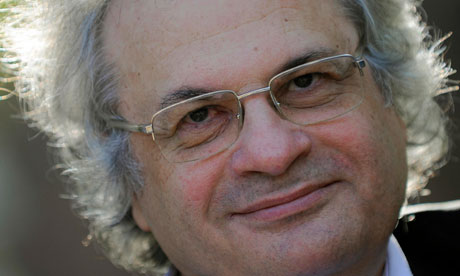
Amin Maalouf was born in 1949 in Beirut of Christian parents. His father was a teacher and journalist; Maalouf himself worked for An-Nahar, the Beirut daily, for several years before, at the height of the Lebanese conflict in 1975, moving to Paris, where he lives with his family. He has only once visited Lebanon since. Underlying his writing is an abhorrence of violence. In 1993, his novel The Rock of Tanios won the Prix Goncourt, and his Balthasar's Odyssey is, in my opinion, a masterpiece. He writes in French, with a unique appreciation of the history of the Middle East and of competing empires and civilisations. So he is perfectly placed and wonderfully qualified to shed light on the pervasive sense that there is a cataclysmic battle in progress between civilisations and systems of belief.
Disordered World is full of insight, most particularly into the mind and preoccupations of the Arab world. For instance, he says that "people whose present offers only examples of failure, defeat, frustration and humiliation scour their past for reasons to keep believing in themselves. The Arabs feel like exiles in the contemporary world, strangers everywhere, scarcely less in their own countries than in the diaspora. They feel defeated, discredited and humiliated. They express it, shout it, lament it and wonder constantly… how they might reverse the direction of history… None of these people recount their history without a thousand references to the west."
Maalouf is particularly good on the foundation of the Jewish state and the humiliations of war against Israel, which so affected the Arab consciousness and led to the never-ending fixation with Israel. He is also painfully acute on the failures of the west in not applying its own domestic principles of justice and human rights when dealing with the Arabs and many other peoples.
Much as I admire Maalouf, I have to report that there is a serious problem here. Maalouf had finished his book, with its many insights (and rather too many grand quasi-philosophical reflections), when the Arab spring erupted. A new introduction was hastily written. Where the text of the book is very gloomy about the prospects for the reordering of the world in this century, the introduction introduces a wholly different thesis – that hope has been buried deep in the Arab mind and "the desire for life and preference for non-violent action were to remain a deep inspiration… In this sense, the Arab spring of 2011 represents the most eloquent – and in the long run the most effective – riposte to the attacks of 11 September 2001 and the jihadist ideology which inspired them."
The truth is that for all those who want "only to live, to express ourselves freely, to sing, and to connect with the rest of the world like young Europeans and Americans and all other peoples", the key question is, what sort of societies are arising out of the new order? And nobody yet knows.
Maalouf has suffered the apocryphal curse of Harold Macmillan: "Events dear boy, events." Events and the impossibility of predicting their outcome have left his book – which in many ways is very fine – in limbo.

